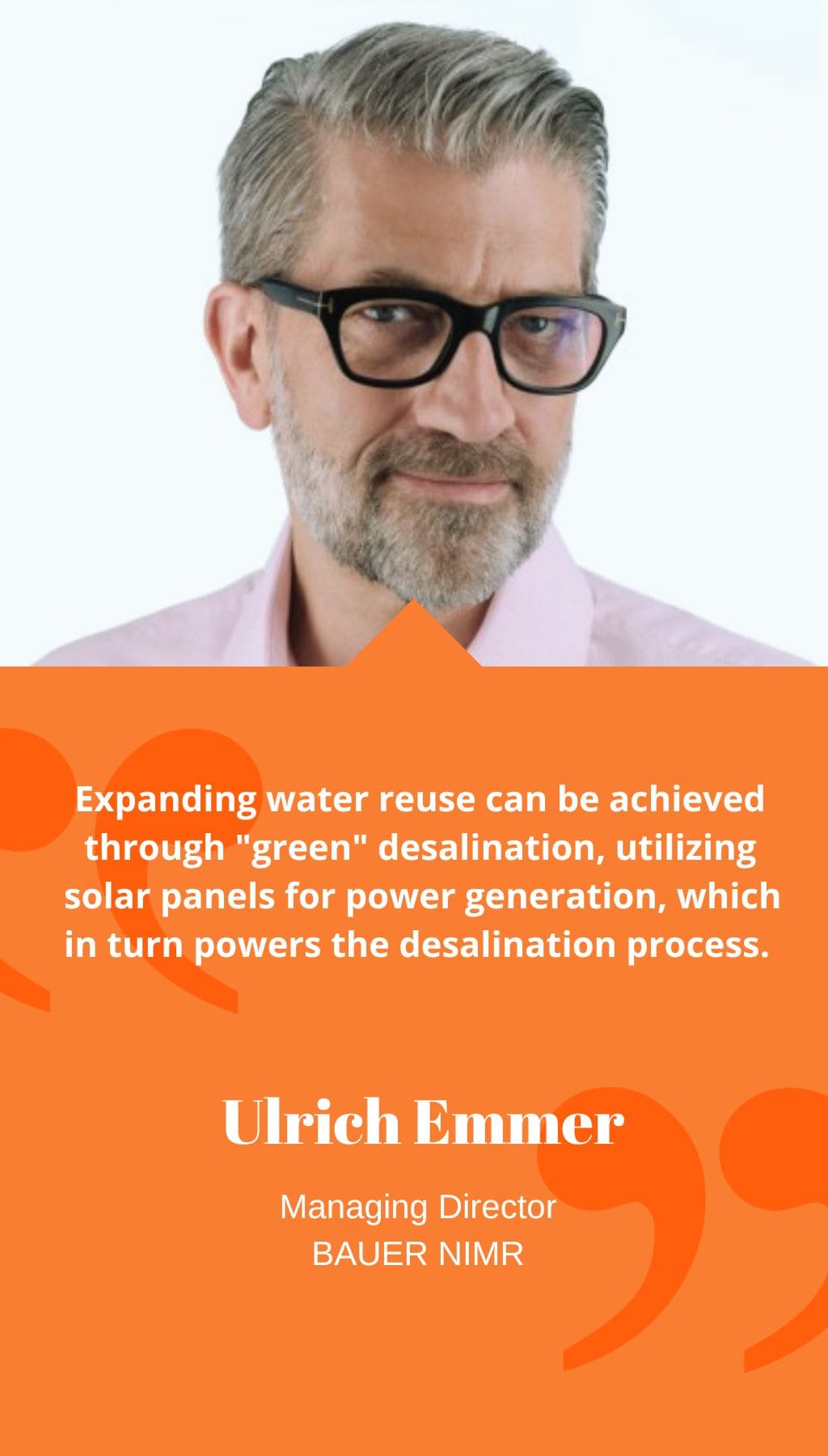
- Oman | 4 June 2021

How has Bauer evolved since its establishment as a leading environmental turnkey solutions provider in Oman?
Bauer Nimr was initially established in 2009 as a small entity, but it has experienced significant growth over the years in line with the different phases of its operations. Our journey began with the Nimr wetland project, where we handled the design, construction, and current operation. Upon completing the concession period in 2044, we will transfer it to our partner PDO. In 2010, we successfully launched the first phase of produced water treatment, with a capacity of 45,000 cubic meters per day. Subsequently, the second phase was commissioned in 2012, increasing the treatment capacity to 115,000 cubic meters. The third phase, completed in 2019, expanded the total treatment capacity to 175,000 cubic meters per day. This has enabled Bauer Nimr to handle a treatment volume equivalent to a city with a population of about 800,000. Our approach involves a nature-based solution, treating hydrocarbon-containing water biologically using plants, algae, and bacteria. It operates as a ‘0-discharge system’ based on gravity flow, making it extremely sustainable. In addition, we incorporated proper waste management into our portfolio in 2016, making a significant contribution to Oman’s sustainability. We recently completed a long-term waste management contract in Khazzan and also offer soil remediation services to treat contaminated soil using microorganisms that break down hydrocarbons. We consider NORM (naturally occurring radioactive material) treatment for the oil and gas industry, as well. Although our services primarily cater to the oil and gas sector, many of our products can also benefit other sectors such as hospitality and tourism.
How does Bauer contribute to the development of In-Country Value (ICV)?
In terms of ICV, approximately 80% of our staff in Nimr are Omani nationals. It has always been our goal to employ as many Omanis as possible on the project, and we have achieved an 80% Omanization rate, with a relatively small number of expatriates working with us. Many of the Omani employees have been with us since the project’s inception in 2010, and we take pride in seeing them grow and develop in their roles. We also provide training programs for our workforce, collaborating with organizations like OPAL that offer training programs for workers in the oil and gas industry. Additionally, we prioritize local suppliers for construction and maintenance work and utilize locally available materials whenever possible.
What steps is Bauer taking to integrate sustainable practices and environmental excellence into its business strategy?
At Bauer Nimr, we believe sustainability starts with small actions, such as banning the use of single-use plastic water bottles in our office. On a larger scale, we strive to reduce our carbon footprint wherever possible. One example is our approach at Nimr, where we minimize power consumption by avoiding the re-injection of produced water into the reservoir. We also focus on water reuse and explore opportunities to repurpose the treated water for irrigation or agricultural projects in collaboration with PDO. Moreover, we have conducted studies on fish farming and biosaline agriculture projects. Expanding water reuse can be achieved through “green” desalination, utilizing solar panels for power generation, which in turn powers the desalination process. The resulting water can be used for date palm plantations or fodder cultivation, creating employment opportunities for local community contractors in remote areas. The biomass generated in Nimr can be utilized for biogas production or fertilizer through composting, aligning with the principles of a circular economy. We aspire to reuse everything originating from the wetland. Furthermore, Bauer Nimr is currently working on a biodiversity study for Nimr, as it has created a unique ecosystem with diverse species of plants, birds, fish, and other animals. Establishing a biodiversity management plan based on the study’s findings will be instrumental for the future. While many organizations focus on greenhouse emissions and achieving net-zero by 2050, we recognize the importance of addressing other critical areas like biodiversity and water management, especially in regions facing water scarcity. To achieve true sustainability, we need to shift our mindset and recognize that investing in immaterial achievements such as biodiversity conservation and environmental preservation is essential, even if it incurs costs in the present.
What are the main goals for Bauer in the coming year?
Our primary goal is to develop and build more wetlands. We aim to be awarded another wetland project not only in Oman but also in the GCC region. Additionally, we are focused on expanding the business of the ReedBox, our highly mobile, nature-based sewage treatment system. The ReedBox is not limited to the oil and gas sector; it has numerous applications, such as serving as a small sewage treatment plant for hotels, schools, and camping sites. The treated water can be utilized for irrigation purposes or dust control, further enhancing its value.














